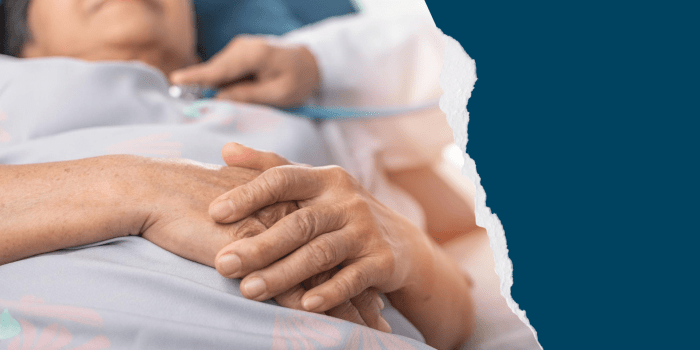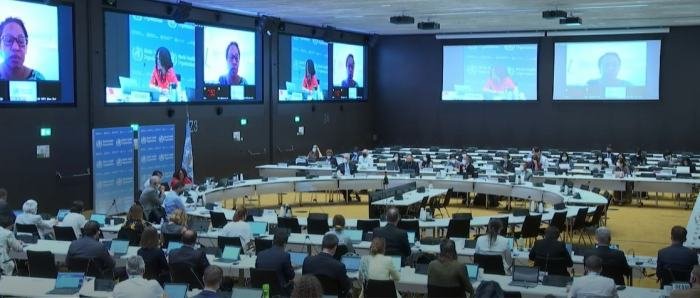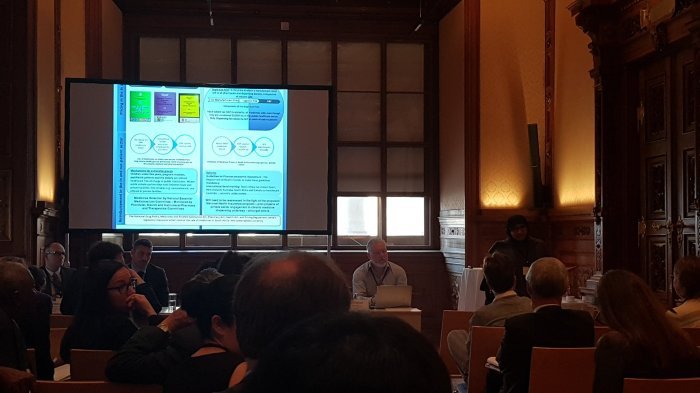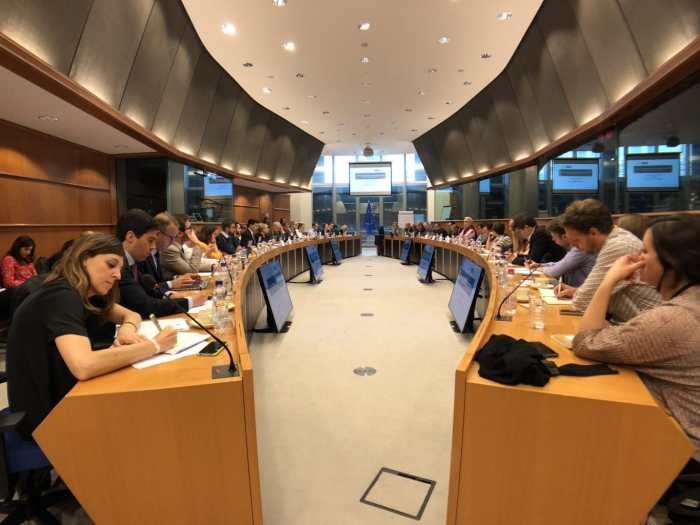Health Action International stands at the forefront of global health advocacy, working tirelessly to ensure equitable access to essential medicines and healthcare for all. Founded on the principles of social justice and human rights, the organization has played a pivotal role in shaping the landscape of international health policy.
Since its inception, Health Action International has been instrumental in advocating for transparency, accountability, and affordability in the pharmaceutical industry. Through its research, advocacy, and capacity-building initiatives, the organization empowers individuals, communities, and governments to make informed decisions about health and medicine.
History and Origins of Health Action International
Health Action International (HAI) is a global non-governmental organization (NGO) dedicated to promoting access to essential medicines and ensuring their quality, safety, and affordability. Founded in 1981, HAI has played a crucial role in advocating for fairer and more equitable access to medicines, particularly in developing countries.
Health Action International is a global non-profit organization that advocates for access to affordable, quality medicines. They believe that everyone should have access to the healthcare they need, and they work to ensure that medicines are available and affordable for all.
They recognize that maintaining good health often involves a holistic approach, which includes fitness. This means that Health Action International promotes not only access to essential medicines but also encourages healthy lifestyle choices.
The Genesis of Health Action International
The establishment of HAI was driven by several factors, including growing concerns about the rising costs of essential medicines, the limited availability of affordable treatments in developing countries, and the increasing influence of pharmaceutical companies on global health policies. In the 1970s, there was a growing awareness of the inequalities in access to essential medicines, particularly in developing countries.
The cost of drugs was often prohibitive, and many people lacked access to basic healthcare.
Key Milestones in HAI’s Journey
- 1981:HAI was founded as the International Drug Action Network (IDAN) by a group of individuals concerned about the growing inequities in access to essential medicines. The organization was initially based in Amsterdam, Netherlands.
- 1984:IDAN officially changed its name to Health Action International (HAI). The name change reflected the organization’s broadened focus on addressing a wider range of health issues related to medicines.
- 1990s:HAI expanded its operations to include advocacy for generic medicines, the promotion of rational drug use, and the fight against counterfeit drugs.
- 2000s:HAI continued to play a significant role in shaping global health policies, including advocating for the inclusion of essential medicines on the World Health Organization’s (WHO) essential medicines list.
- 2010s:HAI became increasingly involved in advocating for greater transparency in the pharmaceutical industry and for increased access to affordable treatments for neglected diseases.
Prominent Figures in HAI’s Founding and Development, Health action international
- Dr. Peter D’Souza:A prominent figure in the global health movement, Dr. D’Souza played a pivotal role in the founding of HAI and served as its first president. He was instrumental in shaping the organization’s early focus on advocating for essential medicines.
- Dr. Ellen Siu:A leading expert on pharmaceutical policy, Dr. Siu joined HAI in the early 1990s and played a key role in expanding the organization’s work on generic medicines and rational drug use.
- Dr. Tine Staal:A dedicated advocate for access to medicines, Dr. Staal joined HAI in the late 1990s and became the organization’s executive director. She has been a strong voice for ensuring the availability of affordable medicines in developing countries.
Mission, Vision, and Core Values

Health Action International (HAI) is a global non-profit organization committed to ensuring access to essential medicines and promoting rational use of drugs. HAI’s mission, vision, and core values guide its efforts to achieve a world where everyone has access to affordable and effective medicines.
HAI’s work is grounded in a belief that everyone deserves access to essential medicines, regardless of their income or location.
Mission Statement
HAI’s mission statement articulates its core purpose and commitment:
To promote access to essential medicines and ensure their rational use for all.
This mission statement encapsulates HAI’s dedication to addressing the global challenges of access to affordable medicines and promoting their responsible use.
Core Values
HAI’s core values guide its actions and initiatives, shaping its approach to advocacy, research, and capacity building:
- Equity:HAI believes that everyone deserves access to essential medicines, regardless of their income, location, or social status. This value drives its efforts to address inequalities in access to medicines and ensure equitable distribution of resources.
- Transparency:HAI is committed to transparency in all its operations, ensuring that its work is open to public scrutiny and accountability. This includes providing clear information about its funding sources, research methods, and advocacy strategies.
- Collaboration:HAI recognizes the importance of working together to achieve its goals. It collaborates with a wide range of stakeholders, including governments, healthcare professionals, civil society organizations, and the pharmaceutical industry, to address the challenges of access to medicines.
- Innovation:HAI is committed to finding innovative solutions to the challenges of access to medicines. This includes developing new strategies for advocacy, research, and capacity building.
- Sustainability:HAI seeks to create long-term, sustainable solutions to the challenges of access to medicines. This includes promoting policies that ensure the long-term availability of essential medicines and building capacity within local communities to address their own needs.
Reflection of Values in Programs and Advocacy
HAI’s core values are reflected in its diverse programs and advocacy efforts.
- Advocacy for Affordable Medicines:HAI advocates for policies that promote the availability of affordable medicines, such as price negotiations, generic drug promotion, and essential medicines lists. This work is driven by the core value of equity, ensuring that everyone has access to essential medicines, regardless of their financial means.
- Research on Drug Use and Access:HAI conducts research on drug use and access, focusing on issues such as the effectiveness and safety of medicines, the impact of pricing policies, and the role of intellectual property rights. This research is guided by the value of transparency, providing evidence-based information to inform policy decisions and promote informed use of medicines.
- Capacity Building for Local Organizations:HAI provides capacity building support to local organizations working on access to medicines. This includes training on advocacy, research, and policy analysis. This work is driven by the value of collaboration, recognizing that addressing the challenges of access to medicines requires collective action.
Key Programs and Initiatives

Health Action International (HAI) has a rich history of developing and implementing impactful programs and initiatives that aim to improve access to essential medicines and healthcare for all. These programs address a wide range of issues, from promoting rational drug use and advocating for affordable medicines to supporting the development of strong national drug policies and strengthening healthcare systems.
Access to Essential Medicines
This program focuses on ensuring that people have access to essential medicines, particularly in developing countries.
- Advocating for Affordable Medicines:HAI actively engages with policymakers, pharmaceutical companies, and international organizations to advocate for lower prices of essential medicines. They work to ensure that essential medicines are available at prices that are affordable for both individuals and national health systems.
- Promoting Rational Drug Use:HAI works to promote the rational use of medicines, which means using the right medicine at the right dose for the right duration. This includes educating healthcare professionals and the public about appropriate medication use, as well as addressing issues like antimicrobial resistance.
- Strengthening National Drug Policies:HAI supports the development and implementation of strong national drug policies that ensure access to essential medicines, promote rational drug use, and regulate the pharmaceutical sector. They provide technical assistance to governments and other stakeholders to develop and implement effective drug policies.
Health Systems Strengthening
HAI recognizes that access to essential medicines is only one part of the equation. A robust healthcare system is essential to ensure that medicines are used effectively and that people receive the care they need.
- Strengthening Healthcare Systems:HAI works to strengthen healthcare systems in developing countries by supporting the development of national health policies, improving the management of essential medicines, and strengthening the capacity of healthcare professionals.
- Improving Access to Healthcare Services:HAI supports initiatives that improve access to healthcare services, particularly for marginalized communities.
This includes working to improve the availability of essential medicines and other health services, as well as addressing social and economic barriers to access.
Global Health Policy
HAI actively participates in global health policy discussions and advocacy efforts to promote access to essential medicines and strengthen healthcare systems worldwide.
- Advocating for Global Health Policies:HAI advocates for global health policies that promote access to essential medicines, promote rational drug use, and strengthen healthcare systems. They participate in international forums and engage with policymakers to ensure that global health policies reflect the needs of developing countries.
- Monitoring and Evaluating Global Health Policies:HAI monitors and evaluates the impact of global health policies on access to essential medicines and healthcare. They provide evidence-based recommendations to policymakers and other stakeholders to improve the effectiveness of global health policies.
Advocacy and Research: Health Action International

Health Action International (HAI) plays a crucial role in advocating for policy changes related to health and medicine, ensuring access to affordable and essential medicines for all. This advocacy is driven by robust research, which forms the foundation of HAI’s work.
Research Focus Areas
HAI’s research endeavors are concentrated on key areas that directly impact global health. The organization focuses on:
- Access to Medicines:HAI examines factors that hinder access to essential medicines, including pricing, availability, and regulatory policies. This research helps identify solutions to address affordability and availability challenges, ensuring that essential medicines reach those who need them.
- Intellectual Property Rights:HAI researches the impact of intellectual property rights (IPRs) on access to medicines. This includes analyzing the role of patents and other IPRs in shaping medicine prices and availability, particularly in developing countries. The research informs HAI’s advocacy efforts to promote flexible IPRs that prioritize public health over commercial interests.
- Pharmaceutical Industry Practices:HAI investigates the practices of the pharmaceutical industry, including research and development, marketing, and pricing strategies. This research aims to expose unethical practices and advocate for greater transparency and accountability within the industry. It also informs policy recommendations to promote fair and ethical pharmaceutical practices.
- Health Policy and Financing:HAI explores the impact of health policies and financing mechanisms on access to medicines. This includes analyzing the role of government policies, health insurance systems, and international aid in shaping access to medicines. The research provides insights for policy reforms that strengthen healthcare systems and ensure equitable access to essential medicines.
Research Findings and Impact
HAI’s research has produced valuable findings that have influenced policy decisions and improved public health outcomes. For instance, HAI’s research on the pricing of essential medicines has led to policy changes in several countries, resulting in lower prices for life-saving drugs.
- Lowering Drug Prices:HAI’s research on the pricing of essential medicines, such as antiretrovirals for HIV/AIDS, has highlighted the exorbitant prices charged by pharmaceutical companies. This research has been instrumental in advocating for lower prices in developing countries, enabling more people to access these life-saving treatments.
For example, HAI’s advocacy efforts led to a significant reduction in the price of antiretrovirals in South Africa, enabling millions of people to access treatment.
- Promoting Generic Medicines:HAI’s research has demonstrated the significant role of generic medicines in expanding access to essential drugs. The organization has advocated for policies that promote the use of generic medicines, which are typically much cheaper than brand-name drugs. This advocacy has resulted in increased availability of affordable generic medicines in many countries, improving access to healthcare for millions of people.
- Influencing International Trade Agreements:HAI’s research has informed policy discussions at the international level, particularly on trade agreements that impact access to medicines. The organization has advocated for provisions in trade agreements that prioritize public health and ensure access to affordable medicines. For example, HAI’s research played a key role in shaping the provisions on access to medicines in the Doha Declaration on the TRIPS Agreement and Public Health, which recognized the need for flexibility in intellectual property rules to address public health emergencies.
Partnerships and Collaborations
Health Action International (HAI) recognizes the importance of collaboration in achieving its mission of promoting access to essential medicines and healthcare for all. The organization actively engages in partnerships with a wide range of stakeholders, including other non-governmental organizations (NGOs), government agencies, academic institutions, and pharmaceutical companies.
These collaborations are crucial for amplifying HAI’s impact, leveraging expertise, and ensuring a comprehensive approach to addressing global health challenges.
Key Collaborating Organizations
HAI collaborates with numerous organizations to strengthen its advocacy and research efforts.
- Médecins Sans Frontières (MSF):HAI and MSF share a common goal of ensuring access to affordable and quality healthcare, particularly in developing countries. They have collaborated on projects related to the development of generic medicines, the fight against counterfeit drugs, and the promotion of rational drug use.
- World Health Organization (WHO):HAI works closely with the WHO on various initiatives, including the development of essential medicines lists, the promotion of rational drug use, and the fight against antimicrobial resistance.
- International Federation of Pharmaceutical Manufacturers & Associations (IFPMA):HAI engages in dialogue with the IFPMA on issues related to access to medicines, intellectual property rights, and the development of new drugs. This collaboration aims to promote a balanced approach that ensures both innovation and access.
- Health GAP:HAI collaborates with Health GAP on initiatives related to access to HIV/AIDS treatment and prevention.
- People’s Health Movement (PHM):HAI and PHM work together to promote people-centered healthcare systems that prioritize equity and social justice.
Benefits of Partnerships
Collaborations provide several benefits to HAI, including:
- Increased reach and impact:Partnerships allow HAI to reach a wider audience and amplify its advocacy efforts.
- Access to expertise:HAI benefits from the expertise of its partners, including researchers, policy experts, and healthcare professionals.
- Resource mobilization:Collaborations can facilitate the mobilization of resources, including funding, technical assistance, and personnel.
- Synergy and innovation:Partnerships foster synergy and innovation by bringing together different perspectives and approaches.
Successful Collaborative Projects
HAI has a track record of successful collaborative projects, including:
- The Access to Medicines Campaign:HAI partnered with MSF and other organizations to launch the Access to Medicines Campaign, which advocates for policies that promote access to affordable medicines in developing countries. This campaign has been instrumental in raising awareness and influencing policy changes.
- The Essential Medicines List (EML):HAI has collaborated with the WHO to develop and update the EML, which provides a list of essential medicines that countries should make available to their populations. The EML is a crucial tool for ensuring access to essential medicines and promoting rational drug use.
- The Fight Against Counterfeit Drugs:HAI has partnered with governments and pharmaceutical companies to combat counterfeit drugs, which pose a serious threat to public health. This collaboration has led to the development of strategies and tools to identify and prevent the circulation of counterfeit medicines.
Impact and Influence

Health Action International (HAI) has made a significant impact on global health and medicine through its advocacy, research, and collaborative efforts. Its initiatives have resulted in positive change, influencing policy decisions and raising public awareness about critical health issues.
Impact on Global Health and Medicine
HAI’s work has had a tangible impact on global health and medicine. The organization has played a crucial role in advocating for access to affordable and essential medicines, particularly in developing countries. This advocacy has led to:
- Lowering drug prices:HAI has successfully challenged high drug prices, making essential medicines more affordable for patients. For example, HAI’s work on HIV/AIDS drugs has resulted in a significant reduction in the cost of treatment, enabling millions of people to access life-saving medications.
Health Action International (HAI) is a global health advocacy group that focuses on ensuring access to affordable and quality medicines. While their work primarily focuses on medication access, maintaining a healthy lifestyle is also important. If you’re looking for a way to get in shape and enjoy a refreshing swim, you can find a list of health clubs near me with pool online.
HAI’s work helps ensure that everyone has access to the tools they need to live healthy lives, regardless of their background or financial status.
- Promoting generic drug use:HAI has actively promoted the use of generic drugs, which are often significantly cheaper than brand-name drugs, while maintaining the same quality and efficacy. This has made essential medicines more accessible to a wider population, particularly in low-income countries.
- Strengthening health systems:HAI has supported initiatives to strengthen health systems in developing countries, including capacity building for healthcare professionals and the development of national drug policies. This has helped improve the quality and availability of healthcare services in these countries.
Influence on Policy Decisions
HAI’s research and advocacy have influenced policy decisions at both the national and international levels. The organization’s work has:
- Informed policy-making:HAI’s research has provided evidence-based information to policymakers, informing their decisions on issues related to access to medicines, drug pricing, and health system strengthening.
- Shaping international agreements:HAI has played a key role in shaping international agreements, such as the Doha Declaration on the TRIPS Agreement and Public Health, which allows developing countries to flexibly use intellectual property rules to access affordable medicines.
- Advocating for legislative changes:HAI has advocated for legislative changes at the national level, such as the introduction of price controls on essential medicines and the establishment of national drug regulatory authorities.
Public Awareness
HAI has effectively raised public awareness about critical health issues, including:
- The importance of access to essential medicines:HAI has conducted campaigns and published reports to raise awareness about the importance of access to affordable and essential medicines, particularly for people living in poverty.
- The impact of high drug prices:HAI has highlighted the impact of high drug prices on patients, health systems, and economies. This has led to increased public pressure on governments and pharmaceutical companies to address the issue.
- The role of generics in improving access to medicines:HAI has promoted the use of generic drugs, emphasizing their quality, affordability, and role in improving access to healthcare.
Challenges and Future Directions

Health Action International (HAI) operates in a complex and constantly evolving landscape, facing a multitude of challenges that require innovative solutions and persistent advocacy. These challenges stem from the inherent complexities of the global health system, the dynamic nature of health threats, and the ongoing need to ensure equitable access to essential medicines and healthcare.
Health Action International advocates for access to affordable, essential medicines, while organizations like snap fitness 24 7 promote healthy lifestyles. Both organizations work to improve the well-being of individuals, though their approaches differ. Health Action International focuses on addressing inequalities in healthcare access, while Snap Fitness emphasizes personal responsibility and fitness.
Addressing Financial and Resource Constraints
Financial and resource constraints are a significant challenge for HAI. Securing funding for research, advocacy, and program implementation is essential for HAI’s mission. The organization relies on a diverse range of funding sources, including grants, donations, and partnerships.
However, competition for funding is intense, and securing adequate resources can be challenging. HAI must continuously explore new funding opportunities and strategies to ensure its financial sustainability.
Navigating Complex Global Health Systems
HAI operates in a complex global health system characterized by diverse regulations, policies, and stakeholders. Navigating this complex environment requires a deep understanding of the intricacies of national and international health systems. HAI must continuously adapt its strategies to address the specific challenges and opportunities presented by different countries and regions.
Strengthening Advocacy Efforts
HAI’s advocacy efforts are crucial to influencing policy changes and promoting access to essential medicines. However, the organization faces challenges in amplifying its voice and gaining the attention of policymakers and decision-makers. Strengthening advocacy efforts requires innovative strategies to engage with key stakeholders, build coalitions, and leverage public awareness.
Responding to Emerging Health Threats
The global health landscape is constantly evolving, with new health threats emerging and existing threats evolving. HAI must remain agile and responsive to these changes. This requires ongoing research, monitoring, and analysis to understand emerging health threats and develop effective interventions.
Promoting Equitable Access to Essential Medicines
HAI’s core mission is to promote equitable access to essential medicines. However, this challenge is compounded by factors such as poverty, inequality, and lack of access to healthcare services. HAI must continue to advocate for policies that promote affordability, availability, and accessibility of essential medicines, particularly in low- and middle-income countries.
Future Plans and Strategies
To address these challenges, HAI has developed a comprehensive set of future plans and strategies:
- Diversifying Funding Sources:HAI will explore new funding opportunities, including philanthropic foundations, social impact investors, and corporate social responsibility initiatives. The organization will also seek to expand its membership base and increase individual donations.
- Building Strategic Partnerships:HAI will strengthen its partnerships with other organizations working in the field of global health, including NGOs, research institutions, and government agencies. These partnerships will leverage complementary expertise and resources to amplify HAI’s impact.
- Enhancing Advocacy Capacity:HAI will invest in building its advocacy capacity by training staff, developing new communication strategies, and leveraging digital platforms to reach wider audiences. The organization will also focus on building relationships with key policymakers and decision-makers.
- Developing Innovative Interventions:HAI will continue to conduct research and develop innovative interventions to address emerging health threats. This includes exploring new technologies and approaches to improve access to essential medicines and healthcare services.
- Promoting Sustainable Development:HAI recognizes the importance of sustainable development in achieving equitable access to essential medicines. The organization will advocate for policies that promote economic growth, social inclusion, and environmental sustainability, all of which contribute to improving health outcomes.
Potential Areas for Growth and Expansion
HAI has identified several potential areas for growth and expansion in the future:
- Expanding Geographic Reach:HAI will explore opportunities to expand its operations into new regions, particularly in countries with significant unmet needs for essential medicines and healthcare services. This expansion will require careful planning and resource allocation to ensure that HAI can effectively address the specific challenges and opportunities presented by different contexts.
- Developing New Programs and Initiatives:HAI will continue to develop new programs and initiatives that address emerging health challenges. This includes exploring new areas of research, advocacy, and program implementation. The organization will also seek to leverage technology to enhance its programs and reach wider audiences.
- Strengthening Capacity Building:HAI will expand its capacity-building activities to support local organizations and communities in developing their own solutions to health challenges. This includes providing training, technical assistance, and resources to enable local stakeholders to advocate for improved access to essential medicines and healthcare services.
- Promoting Public Awareness:HAI will continue to promote public awareness of the importance of access to essential medicines and the challenges faced by people in low- and middle-income countries. This includes using digital platforms, social media, and traditional media to reach wider audiences and engage them in the fight for equitable access to healthcare.
Final Wrap-Up

Health Action International’s unwavering commitment to promoting global health equity has made a profound impact on the lives of countless individuals. By challenging the status quo and advocating for systemic change, the organization continues to inspire hope and drive progress towards a healthier and more just world.
Detailed FAQs
What are the main areas of focus for Health Action International?
Health Action International focuses on promoting access to essential medicines, advocating for rational drug use, and ensuring transparency and accountability in the pharmaceutical industry.
How does Health Action International achieve its goals?
The organization uses a variety of strategies, including research, advocacy, capacity-building, and public education. They work with governments, civil society organizations, and other stakeholders to influence policy and practice.
What are some examples of Health Action International’s impact?
Health Action International has been instrumental in advocating for the inclusion of essential medicines on national drug lists, promoting the use of generic medicines, and exposing unfair pricing practices by pharmaceutical companies.